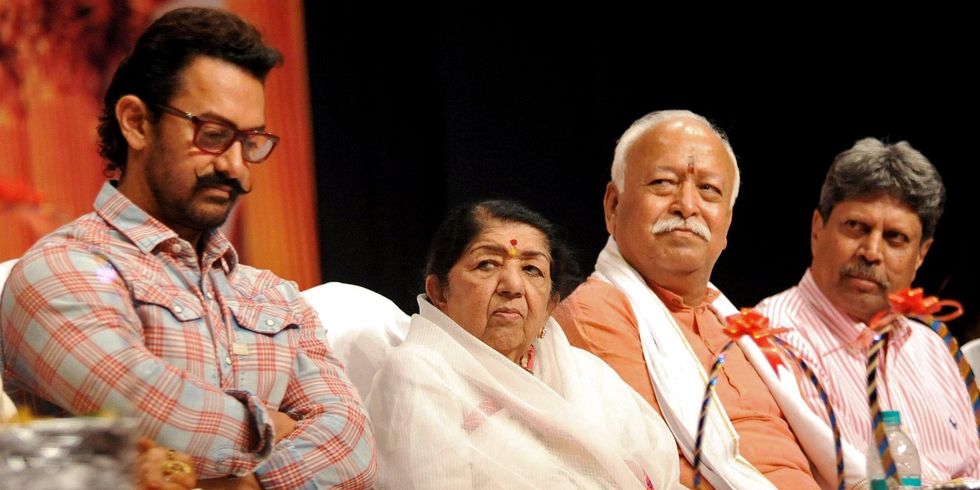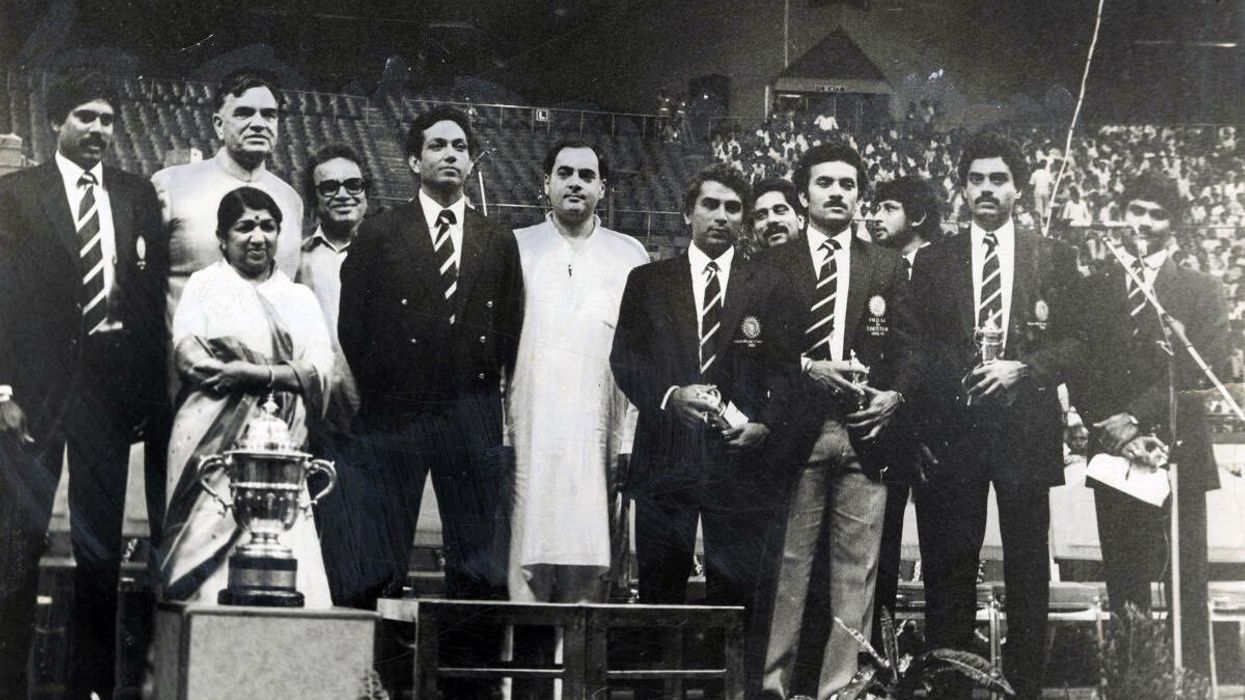I DON’T think I would have the courage to do it now, but back in 1998 – when I was even more foolish – I said yes when the BBC asked if I would talk about Lata Mangeshkar for a Radio 4 show called Distant Divas.
What eased my nervousness was that I had a sensitive presenter called Kate Mosse to guide me through the programme with just the right degree of handholding. I couldn’t find my old notes, but discovered that the conversation is still on the BBC’s website at www.bbc.co.uk/sounds/play/b039g8pm.
I had learned that despite her wealth, Lata lived a pretty ascetic life in Bombay (now
Mumbai). Her spacious apartment, which had a puja room, was not by the beach in Juhu, which was home to many of Bollywood’s biggest stars. Lata’s father was Maharashtrian and her mum was from Gujarat. She wasn’t vegetarian, liked to bite on a green chilli once in a while and enjoyed pakoras.
But she exercised her voice by doing riyaaz (practice) every morning. She did not marry, was religious and believed in reincarnation. She wouldn’t sing lyrics she considered inappropriate or vulgar. She was best in Hindi and in Urdu, for which she took lessons, but she also sang in several other Indian languages, including Bengali. She especially enjoyed singing ghazals.
Ironically, her father had not wanted Lata or her two sisters and a brother to go into cinema, which he considered a bad influence, but to stick to the rigours of pure theatre. From him Lata apparently inherited a love of cricket – and at her funeral last Sunday (6), one of the mourners was Sachin Tendulkar. She was present at Lord’s in 1983 when Kapil Dev’s side won the World Cup and later posed for a photograph with the Indian cricket team.

Asked to choose half-a-dozen songs around which the programme could be woven, I consulted friends both in Britain and in India. No one quite knows how many songs Lata has recorded, but a figure of 30,000 was mentioned even in 1998.
Kate asked about the concept of “playback singers” – I was told some actresses stipulated in their contracts they would take on a part in a film only if Lata was the singer.
Kate took trouble to pronounce the song and film names as best as she could. She asked about the significance of the songs that she introduced. They included Aayega Aanewala from Mahal (1949); Aaja Re Pardesi from Madhumati (1958); Pyar Kiya Toh Darna Kya from Mughal-e-Azam (1960); Chalte Chalte from Pakeezah (1972); and the title number from Satyam Shivam Sundaram (1978).
A close friend had taken me to see a film called Rudaali, made in 1993 and featuring professional mourners who were hired by rich families in certain parts of Rajasthan to wail at funerals. I said if there was one Lata song I would take to a desert island, it would be her singing Dil Hoom Hoom Kare in the film.
Lata transcends boundaries. In his condolence message, Pakistan’s prime minister Imran Khan said, “With the death of Lata Mangeshkar the subcontinent has lost one of the truly great singers the world has known. Listening to her songs has given so much pleasure to so many people all over the world.”
Her songs are very much part of the silken thread that ties the south Asian diaspora
across the world.




